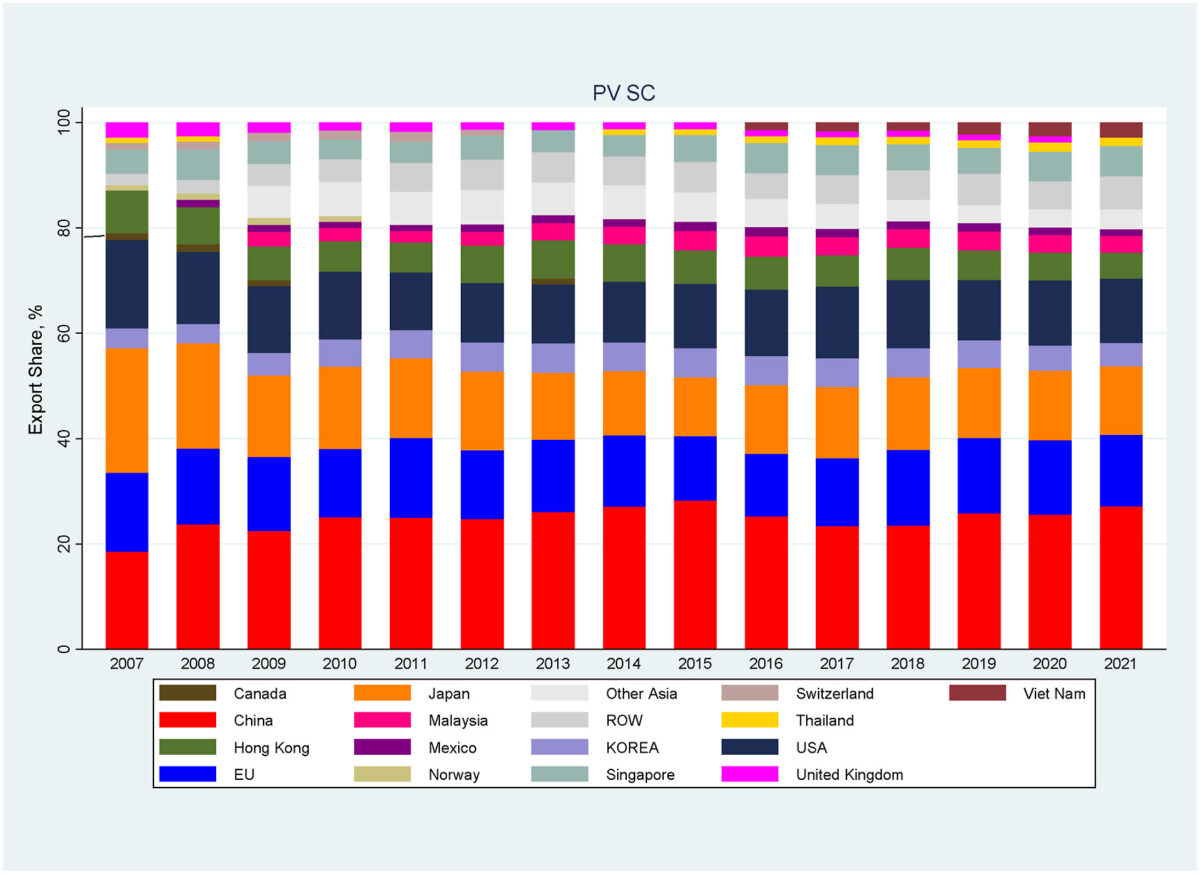The scientists based their analysis on trade data from the UN Comtrade database and the Organisation for Economic Co-operation and Development's (OECD) patent database. The main limitation of this approach relates to the level of detail of patent information.
“Going beyond four-digit patents would have allowed for a more fine-grained analysis of the technologies underlying materials and components, as well as a more precise matching of the productive and technological sides,” the researchers said.
The research group presented its findings in the paper “Technological sovereignty and strategic dependencies: The case of the photovoltaic supply chain,” which was recently published in the Journal of Cleaner Production.
This content is protected by copyright and may not be reused. If you want to cooperate with us and would like to reuse some of our content, please contact: editors@pv-magazine.com.



2 comments
By submitting this form you agree to pv magazine using your data for the purposes of publishing your comment.
Your personal data will only be disclosed or otherwise transmitted to third parties for the purposes of spam filtering or if this is necessary for technical maintenance of the website. Any other transfer to third parties will not take place unless this is justified on the basis of applicable data protection regulations or if pv magazine is legally obliged to do so.
You may revoke this consent at any time with effect for the future, in which case your personal data will be deleted immediately. Otherwise, your data will be deleted if pv magazine has processed your request or the purpose of data storage is fulfilled.
Further information on data privacy can be found in our Data Protection Policy.